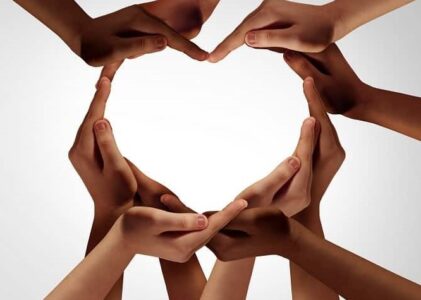Mind moves, mind shift, perspective change or reality re-evaluation. Whatever you call it the principle is to “change your mind”. I change my mind every day. I change my mind about what I’m going to wear. I change my mind about what to have for breakfast, lunch or dinner. I change my mind because I’m a woman – and that’s my prerogative. This kind of mind change is not what I want to talk about today.
I want to talk about what goes on in your mind when you want to make a change in your life. I want to talk about how you move your mind from negative thinking to positive thinking. This kind of mind move is the second phase in transformation.
Think of like this. The old digital alarm clocks had a SET button. You choose the time you want to wake up, scroll through the time until you get it just right and press the SET button. This keeps the time in memory. When that time rolls around, the alarm goes off. In the same way, mind moves shift you from a negative way of thinking to a positive way of thinking. You push the SET button to keep it in memory.
A powerful mind move involves moving from a victim mentality to a mind SET of empowerment. Instead of feeling helpless and at the mercy of external circumstances, you recognize your natural strength and responsibility in shaping your own destiny.
For example, rather than dwelling on past traumas over things that happened to you, you get to reframe the event as an experience that shaped your resilience and ability to overcome adversity. You’re still standing. The fact that you are still standing is testament to your strength and resilience.
Transitioning from a fixed mind SET to a growth mind SET is another important mind move. Rather than believing your abilities and qualities are fixed traits, you get to see challenges as opportunities for growth and learning. This is a growth mind move. You move to embrace setbacks as temporary rather than insurmountable obstacles and approach life with a sense of curiosity. You are open to new experiences.
Many women who have experienced trauma struggle with self-doubt and low self-esteem. A mind move in this area involves cultivating self-confidence and self-belief.
When I learned that it was necessary for me to make this mind move, I panicked. I didn’t think it was possible. I believed that this was the way I was and it could not change. If you think this way or this statement fills you with anxiety, please, take a deep breath, exhale slowly and believe that you can cultivate self-confidence.
Cultivating self-confidence involves challenging negative self-talk and replacing it with affirmations of self-worth and capability. For example, instead of telling myself, “I’m not good enough,” I affirm, “I am worthy of love and respect, and I have the strength to overcome any challenge.” It can seem so simple, yet the result of replacing negative self-talk with positive affirmation is SO PROFOUND.
Positive affirmations provide a counterbalance to negative thoughts. Affirming statements challenge and replace destructive beliefs with more empowering beliefs. Repeating positive affirmations gradually rewires your brain to adopt positive and supportive thought patterns, leading to improved self-esteem and self-worth.
Positive affirmations cultivate self-compassion by offering words of kindness, understanding, and acceptance. By affirming your own worthiness, strength, and resilience, you learn to treat yourself with greater kindness and compassion, nurturing a deeper sense of self-love and acceptance.
Positive affirmations inject hope and optimism into your life reminding you that healing is possible and that better days lie ahead. Declarations such as “I trust in the healing process,” “I believe in my ability to heal,” and “I am deserving of a bright future” instill a sense of hope and possibility. This motivates you to persevere on your journey of recovery.
Fear often holds us back from pursuing our dreams and living life to the fullest. A mind move from fear to courage involves acknowledging the presence of your fear but not letting it dictate your actions.
It means stepping out of our comfort zone and taking a bold leap of faith, even in the face of uncertainty. For example, instead of allowing fear of failure to paralyze you, you get to embrace the unknown and take a calculated risk to pursue your goals and dreams.
Take risks. Try new experiences that stretch your abilities and expand your horizons. It may be scary at first, but the effort will be so worth it.
Finally, a transformative mind move involves shifting from an attitude of scarcity to one of abundance. Instead of viewing life through a lens of lack and limitation, you get to see abundance and possibility all around you.
Abundance is not only financial. If you open your heart and your eyes you will see the abundance in your life. I like to go for a walk in the woods regularly. I see the power of the trees and the wind. I see the beauty of the forest floor. I breathe in the clean air. This to me is abundance. Abundance, for me, is looking into the eyes of my children and grandchildren, being thankful they have been given to me and I feel rich. I can look in my fridge and see that I have enough, even if it’s only enough for today.
This may involve practicing gratitude for what you already have and adopting an abundance mind SET that attracts more positivity and abundance into your life. For example, rather than focusing on what you lack, focus on what you have to be grateful for and trust that your needs will be provided.
I find that writing down the things I am grateful for today is an impactful practice. I am reminded of all things, people, places, and experiences I have had. I see how these have impacted my life and I live with a grateful heart. I can also be grateful for my future and picture what that looks like.
I know a woman named Lena. Lena had always felt like she was merely surviving, navigating her days with a heavy heart and a sense of resignation. Deep within her soul, she longed for something more—a life filled with purpose, joy, and fulfillment.
One day, as Lena sat in her tiny apartment, surrounded by the familiar trappings of her existence, she couldn’t shake the feeling that there had to be more to life than what she was experiencing. She yearned for a change, a transformation that would break the chains of her self-imposed limitations and set her spirit free.
With a flicker of determination, Lena embarked on a journey of self-discovery—a journey that would challenge her beliefs, push her boundaries, and ultimately lead her to profound transformation.
As Lena delved into the depths of her own psyche, she encountered the first hurdle on her path: the victim mindset. This mindset held her captive for a long time.
She realized that she had been allowing her past traumas to define her, casting herself as the helpless victim of circumstances beyond her control. But in that moment of awareness, Lena made a conscious choice to reclaim her power—to rise above her past and embrace her innate strength and resilience.
With each move forward, Lena encountered new challenges that tested her resolve. She faced moments of doubt and uncertainty, grappling with the fear of the unknown that threatened to hold her back. But instead of allowing fear to dictate her actions, Lena summoned the courage within her—the courage to step into the unknown, to trust in her own abilities, and to pursue her dreams with unwavering determination.
Along the way, Lena discovered the transformative power of a growth mindset—a belief in her own potential to learn, grow, and evolve. She realized that setbacks were not roadblocks, but rather opportunities for growth and self-discovery.
With each challenge she encountered, Lena embraced the opportunity to expand her horizons, to push past her comfort zone, and to emerge stronger and more resilient than before.
As Lena journeyed deeper into the heart of her own transformation, she began to see the world through new eyes—an abundance mindset opened her heart to the infinite possibilities that surrounded her. She realized that life was not a zero-sum game, but rather a tapestry of abundance and opportunity, waiting to be woven into the fabric of her own unique story.
In the end, Lena emerged from her journey of transformation not as a mere survivor, but as a beacon of hope and inspiration to all who knew her. She had exceeded her limitations, embraced her true essence, and stepped into a reality filled with joy, purpose, and fulfillment.
Now, you get to choose how your transformation develops. This is ALL about you. No one can take it away. It is nobody else’s business. Your transformation is NOT selfish. Your transformation is the MOST loving act you can do for yourself. Without loving yourself it is impossible to love anyone else.
By making these mind moves, your get to transform your perspective on life. You get to unlock your full potential. You get to create a reality filled with joy, purpose, and fulfillment. This is your journey of self-discovery and empowerment. This journey begins with changing the way you think and perceive the world around you.
The next blog post in this series is the exploration of the huge impact healing methods can have on your transformation.
Remember that trauma does not define you. You choose how to live your life.






